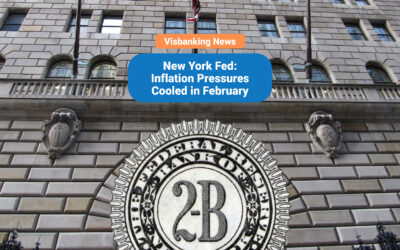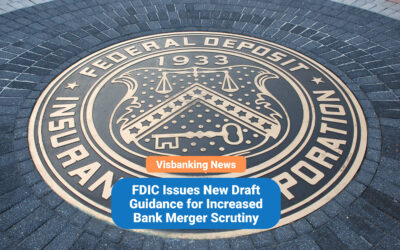By: Ken Chase.
Estimated reading time: 3 minutes
With the ongoing digital revolution in full swing, conversations about financial technology often gravitate toward the new upstart fintech companies that are actively disrupting the banking and payment industries. Many fintech fans have even predicted the demise of traditional banks, arguing that the new digital platforms and technologies like cryptocurrencies will eventually leave that banking model in the dustbin of history. However, a closer look at the banking industry’s response to these new technologies indicates something else entirely.
Take the major national banks in the United States, for example. Rather than sitting on the sidelines and watching these upstarts take their place, these banks are diligently adopting new technologies and evolving to meet their current and future customers’ digital expectations. Nowhere is that truer than in the case of large national banks, whose resources have enabled them to adapt more quickly to changes in technology and customer demands.
What are national banks?
In the United States, national banks are defined as commercial banking entities that have obtained a charter from the U.S. government’s Comptroller of the Currency. These banks operate in accordance with federal regulations, pay premiums to the FDIC to receive insurance coverage for their depositors’ funds, and have the ability to borrow funds from the U.S. Federal Reserve as needed. Most national banks provide services on a nationwide basis, unlike state banks which are typically focused on one state.
Some of the most well-known national banks in the United States include Wells Fargo, Citizen National Bank, PNC, U.S. Bank, Chase Bank, and Citibank. As of 2019, there were roughly 840 national banks in the U.S., according to the Office of the Comptroller of the Currency – more than two-thirds of the 1,200 U.S. banks within the federal banking system.
The role of national banks in the U.S. economy
The importance of national banks in a modern economy is almost impossible to overstate. In the U.S., large help to ensure an efficient banking system that provides financial stability in both good and bad economic times. Like their smaller competitors, provide their individual and commercial customers with access to modern financial products and services that facilitate everything from daily commerce to business expansion.
These services include essentials like handling deposits in both checking and savings accounts, managing mortgage loans, and providing both personal and business lending opportunities to their customers. They can also include expanded services like credit cards, lines of credit, and other financial options that facilitate economic activity and growth. Finally, national banks also have the ability to transact with their local Federal Reserve Bank, and auction Treasury bonds.
Evolving with the times
Like the rest of the financial industry, national banks have been forced to adapt to a changing world and the new technologies that are driving consumer expectations. Fortunately, national banks typically enjoy greater assets than their smaller competitors, and are thus able to quickly adopt new technologies, respond to fintech disruption, and launch new products and services in ways that meet their customers’ needs.
Of course, none of that means that national banks face no challenges in an evolving economy. To the contrary, many of those banks are continuing to assess their digital strategies to ensure that they can continue to compete effectively with nimbler fintech service providers who are wholly focused on customer engagement in the digital realm. The good news is that there are studies showing that national banks are well-positioned to benefit from the current rate of banking customer migration from smaller institutions.




